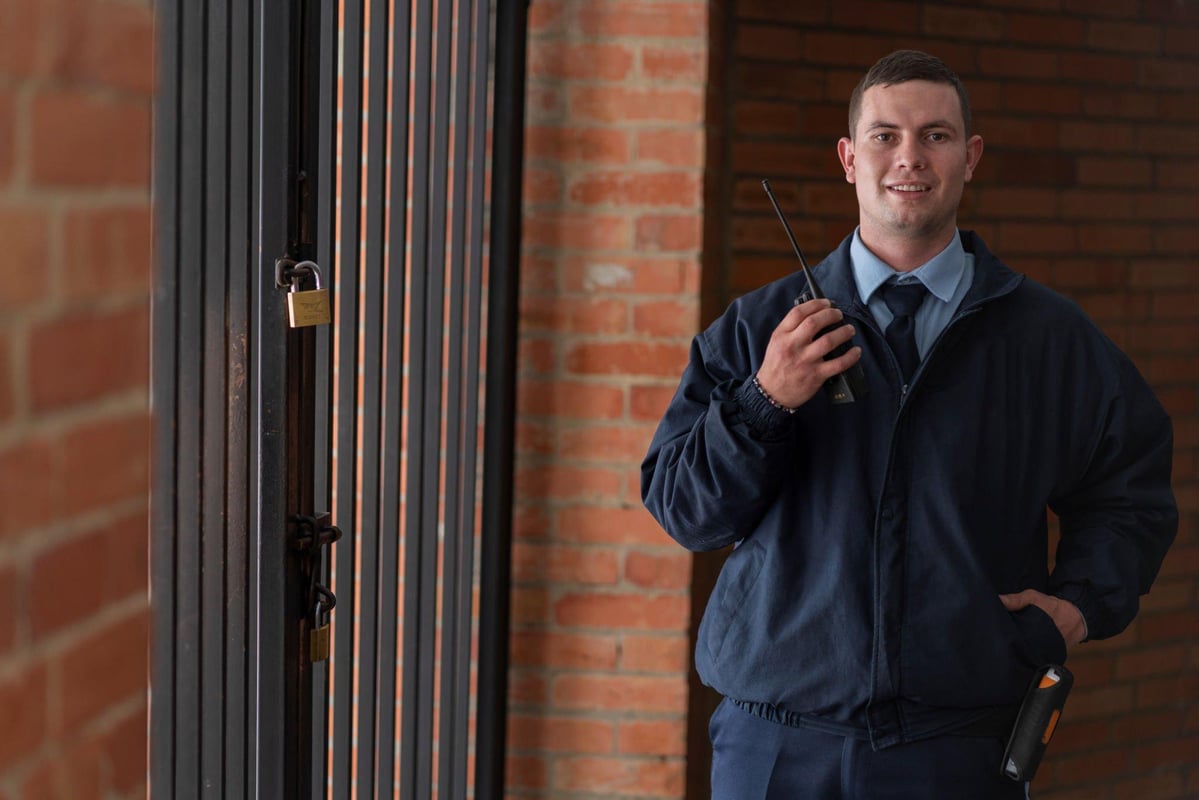
Financial aid (may be available)

Financial aid (may be available)

Financial aid (may be available)

Financial aid (may be available)
$80 total
$24.99 total
$80 total
No cost info

No cost info
No cost info
No cost info
No cost info
$120 total
No cost info
Embarking on a career as a security guard can be an excellent choice for those who have a keen interest in public safety and security. The demand for security guards is increasing, and Atlanta, Georgia, offers numerous opportunities for individuals seeking to join this profession. This blog post will guide you through the process of becoming a certified security guard, including the requirements, training, certification, and job opportunities in Atlanta.

Security guards are trained professionals who protect property, assets, or people. They are often employed by businesses, government agencies, or private security firms. Security guards may patrol on foot or in vehicles, monitor surveillance systems, respond to emergencies, and report suspicious activities or incidents.
To become a security guard in Georgia, you must meet certain requirements:
Be at least 18 years old
Have a high school diploma or equivalent
Undergo a background check
In addition to these basic requirements, prospective security guards must complete a state-approved training program. These programs typically cover topics such as:
Basic security procedures
Emergency response
First aid and CPR
Legal aspects of security
Report writing
When searching for a security guard training class, consider the following:
Accreditation: Ensure that the program is accredited by the Georgia Board of Private Detective & Security Agencies.
Curriculum: The program should adequately cover all necessary topics, including security procedures, emergency response, and legal aspects.
Instructors: Trainers should be experienced and knowledgeable in the field of security.
Location: Consider the convenience of the class location and schedule.
A typical day in a security guard class might involve a mix of classroom instruction, hands-on training, and scenario-based exercises. You may learn about topics such as:
Methods of patrol
Incident response
Use of force
Emergency medical procedures
Upon successful completion of a security guard training program, you will need to pass a state-administered exam to become certified. The exam covers the material learned during the training and ensures you understand the laws and regulations pertaining to the security guard profession in Georgia.
Securing a job as a security guard in Atlanta can be a straightforward process with the right tools and resources. Online job boards, networking events, and career fairs are great places to start. Additionally, you can check out Dreambound's blog for more job search tips and resources.
After becoming a security guard, you may wish to further your education by taking additional classes. These could include:
Advanced security training
Specialized courses in areas such as cybersecurity or executive protection
, which can complement your security guard skills.
Continuing education is essential for security guards who aspire to advance in their careers. Taking advanced courses or earning additional certifications can open up opportunities for supervisory or managerial roles.
Networking is a valuable tool in any profession, and security is no exception. Joining professional organizations, attending industry events, and connecting with fellow security professionals can provide valuable opportunities for learning and career advancement.
Technology is playing an increasingly important role in the field of security. Familiarity with surveillance systems, access control technology, and cybersecurity can be a significant asset for a security guard.
Security guards play a crucial role in maintaining community safety. By protecting property, preventing crime, and responding to emergencies, they contribute to a safer environment for everyone.
Becoming a security guard can be a rewarding career path for those interested in public safety and security. With the right training and certification, you could soon be on your way to a fulfilling career in this growing field. Whether you're just starting your journey or looking to advance in your career, Atlanta offers numerous opportunities for aspiring security guards. Remember, the key to success lies in choosing the right training program and staying committed to continuous learning and professional development.
Dreambound has written many guides to help you understand what it takes to get this certification. If you're curious about the process or requirements in other states, check out our other guides below:
If you're exploring various professional paths, Dreambound has in-depth guides to help assist you. Explore a few of these resources below.
Dreambound's platform allows prospective students to find the right educational program for them through searching, filtering, and connecting with our extensive selection of career & technical education partners.
Dreambound has over 70 programs across healthcare, technology, business, and industrial trades. This includes programs such as Medical Billing, Cybersecurity, and welding.
Some of our schools offer financial aid for those who qualify. Many others offer payment plans, where you can pay the cost of class over time.
Yes, Dreambound offers many online programs. On Dreambound's search, you can filter by online, in-person, and hybrid (part online, part in-person).
Dreambound is completely free for you to use! We are supported by schools and organizations who pay to advertise on our website, so we can offer all of our career resources for free.